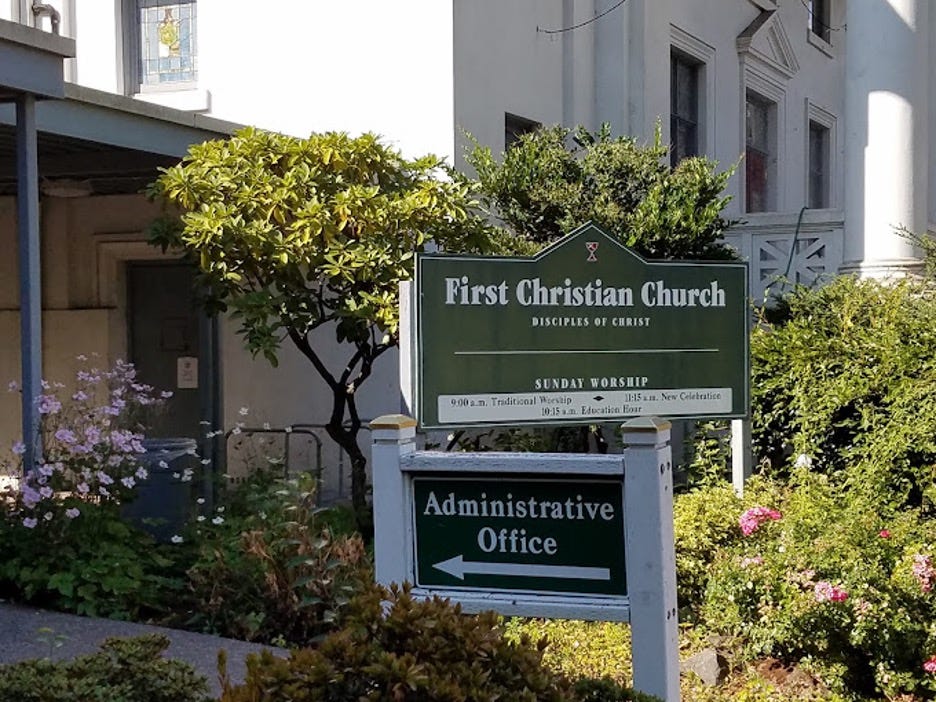We need better community solutions for our mentally ill neighbors in crisis. Their plight may engender sympathy or irritation in our hearts, but we seem to agree that they need a safe place to be. Unfortunately, we have had trouble finding a path to a providing a place where the services they require can be provided in a sustainable way.
The Scope of the Problem. Interactions with people in the throes of a mental health crisis often scare, disturb, or alienate us. Whether we experience the crisis as a stranger screaming in the middle of the street or a relative melting down in our own home, our instinct is to want to stop it somehow. Unfortunately, the options available – the police, the emergency room, or CAHOOTS – can’t always solve the problem. The police aren’t a mental health service; the emergency room is expensive and often too busy to handle the situation quickly; and CAHOOTS often has nowhere to take the person after hours.
Low Barrier Safe Space. Sometimes, the person in crisis just needs a safe place to be, somewhere to calm down and return to a more stable frame of mind. We have a low-barrier shelter in the community, but it can’t handle folks whose behavior upsets other residents. Egan Warming Center’s awake site also plays this role when it’s activated on freezing nights. It provides people a place where they can be safe, avoid escalating conflicts, and receive some basic support in terms of food and first aid. While it is not a medical service, it provides a relatively low-cost place for people to recover on their own. Unfortunately, while Egan was open a record 31 nights this season, it is not available for the whole year.

Service Center. When past the immediate crisis, people often need a place to take care of their basic needs, from personal hygiene to help finding more permanent shelter. In our community, St Vincent de Paul operates the Lindholm Center Eugene Service Station to provide these services from 8:30 am to 5 pm, 7 days a week. Critically, it provides case management. Connecting the Service Station to a low barrier 24/7/365 safe space would help people take the next step after the crisis.
Behavioral Health Center. Many of the clients I have met through Egan need behavioral healthcare to heal, but they do not need the intensive services of an emergency room. Indeed, at the emergency room, if they do not present an active danger to themselves or others, they may wait quite some time before being seen. Some have advocated for a freestanding 24-hour psychiatric emergency room with connected in-patient beds. but that model has significant drawbacks. The Unity Center of Portland demonstrates those problems.
First, emergency psychiatric patients are most often covered by Medicaid, which reimburses only about 80% of the cost of actually treating a patient. Effectively, this means that soon after a psychiatric emergency hospital opens, it is quickly goes insolvent. Second, we already have a shortage of prescribing mental health providers in our three existing local emergency rooms with mental health services. Opening a new one will not magically produce new providers or the resources to support them. Finally, opening a hospital with inpatient services to serve people in mental health crises creates a duty of care to the community. Unity staff found this out when a patient they discharged immediately assaulted another person. The local ERs have the security necessary to handle people who pose an active danger to themselves or others, but they are often overwhelmed by mental health patients with less acute needs.
All of the Above. The best solution for our mentally ill neighbors in crisis will combine a safe space, service center, and community mental health clinic. While each of these exist in our community to some degree, they are not coordinated effectively to address the needs of people in mental health emergencies. Instead of replacing the mental health services available at our existing emergency rooms, a combined operation could reduce the burden on them while providing a stable environment for people to recover.
An open access mental health clinic with expanded hours annexed to a service station/low barrier safe space can provide timely urgent mental health care effectively. In our community, Community Health Centers of Lane County (CHC) provides healthcare to low-income people, and the county’s mental health service provides care to the severely and persistently mentally ill. While they operate under different federally-supported programs, they are both county entities tasked with providing mental health services. Indeed, the CHC receives liability coverage from the federal government as well as a “plus up” from it to cover the differential between Medicaid reimbursements and the cost of services. Maybe this is the foundation of a system that works to protect and care for all of us. Whatever the solution, it should be integrated with the other services available. We are a caring community. Let’s find a better answer for our neighbors in crisis.
Other News
Bravo Zulu for Dignity and Respect. It’s good to see a senior officer defending his troops. We should respect everyone who serves. https://www.navytimes.com/news/your-navy/2023/04/18/admiral-defends-non-binary-officer-against-attacks-from-gop-lawmakers/.
Protecting LGBTQ Rights. It’s time to update the Oregon Constitution to preserve all of our rights. https://www.oregonlive.com/politics/2023/04/oregon-democrats-propose-constitutional-amendment-to-enshrine-rights-to-same-sex-marriage-gender-affirming-care.html
Protecting People from Predatory Collections. Bankruptcy exemptions law doesn’t get a lot of attention, but an update could go a long way to taking pressure off people living in poverty and suffering under heavy debts. https://oregoncapitalchronicle.com/2023/04/27/legislative-proposal-aims-to-protect-oregonians-struggling-with-debt/






Another issue that nobody talks about but needs to be addressed is the burden of property taxes on low income people, maybe especially seniors. Over 18% of my income goes to property taxes. That's my biggest expense. We need relief. Do you have any ideas to contribute to that issue? You are doing a great service by writing these letters. Thank you!
How can we prevent people experiencing mental health crises from harming other people, including with guns?